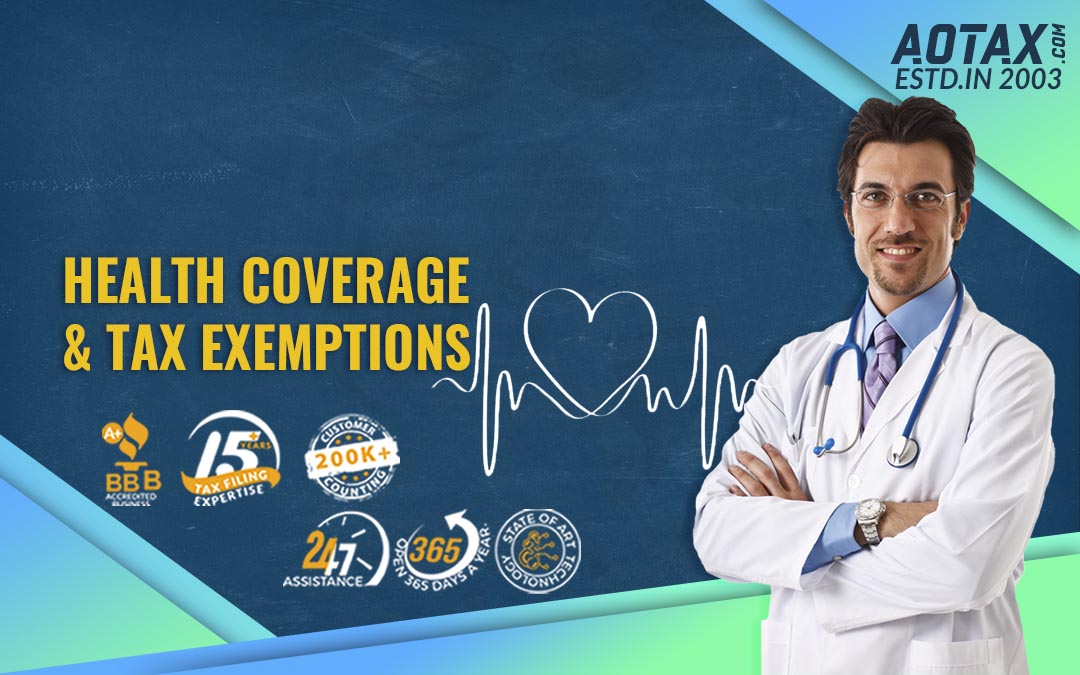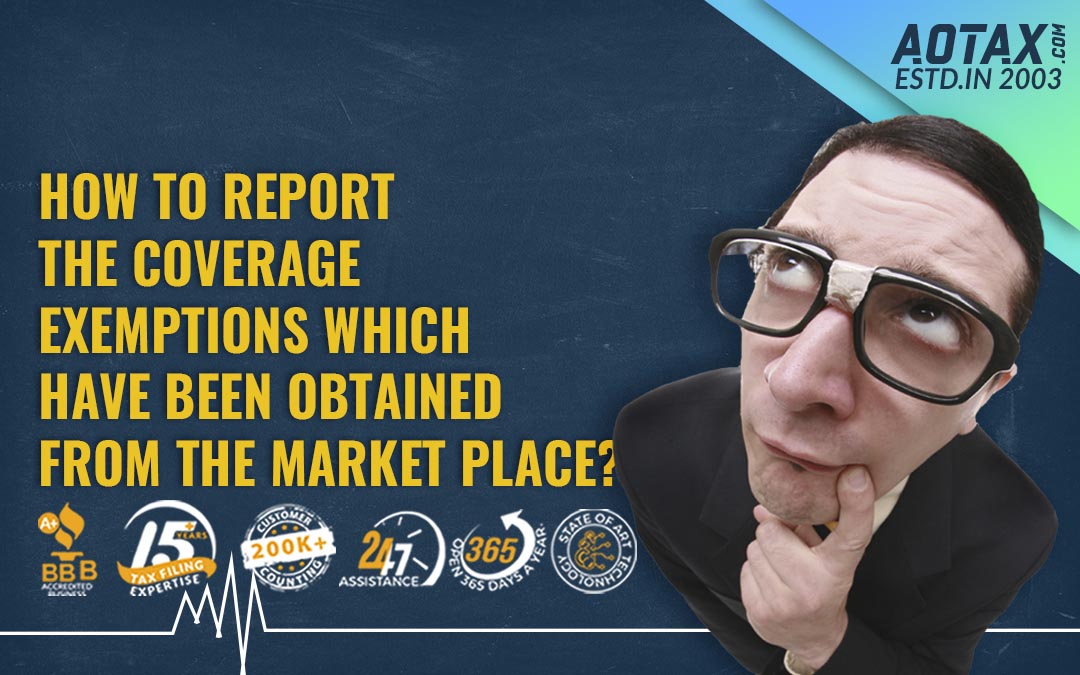Health coverage and tax exemptions.

According to the individual shared responsibility provision of the Affordable Care Act, you and the members of your family must have the qualifying health coverage. In case there is no coverage available for each month, you would have to make a payment called an Individual shared responsibility payment at the time of filing the Federal Income Tax return.
However, there are some taxpayers who qualify for an exemption from the requirement of making the above-mentioned payment. The major causes for this exemption can be:-
- Those taxpayers might not be having access to the health coverage which is affordable,
- Those taxpayers might have had a coverage gap which is less than three calendar months or
- Those taxpayers have low income and expansion of Medicaid was not done by their respective states.
Moreover, there can be some taxpayers who would have health coverage or would qualify for the exemptions for some months and would owe payments for other months.
The Interactive Tax Assistance Tool of the IRS helps in the determination of your eligibility for a coverage exemption or your responsibility for making the payment of individual shared responsibility. The exemption might have been obtained anywhere; it must be reported by you on Form 8965, Health Coverage Exemptions while filing your Income Tax Returns.
Health Coverage Exemptions
The list of some of the available major health coverage exemptions is mentioned below.
-
Unaffordable coverage –
The available health coverage you have would be considered unaffordable. Your coverage would be considered as unaffordable when the lowest amount which you must have paid for the employer-sponsored coverage or for the coverage that has been obtained by the Marketplace is much more than a particular percentage of the household income you have for the year.
-
General hardship –
This means that you had experienced certain circumstances which prevented you from availing the health coverage under a qualified health policy. These circumstances can be eviction, homelessness, domestic violence, foreclosure, unpaid medical bills, etc.
-
Short coverage gap –
This would mean that you were without any coverage for almost three consecutive months during a year.
-
Income below the return filing threshold –
This exemption means that your gross income lies below the minimum threshold needed to file a tax return.
-
Certain noncitizens –
This exemption is for those who are not US citizens and are not present in the country as per the laws. You can qualify for this exemption even if you are having a Social Security number (SSN).
-
A resident of a state which did not expand Medicaid –
The income of your household is below 138 percent of the federal poverty line for your family’s size. Moreover, during any time of the year, you resided in a state which did not participate in the Medicaid expansion.
-
Members of the Indian tribe –
This health coverage exemption is available for you when you are a member of a Federally-recognized tribe of India or were eligible for services from an eligible Indian health care service provider.
How to report the coverage exemptions which have been obtained from the Marketplace?

If you are obtained health coverage exemption from the Marketplace, then you would receive an Exemption Certificate Number (ECN). You can report this exemption by entering the ECN in Part I of your Form 8965, Health Coverage Exemptions in Column C. In case, your application for health coverage exemption has not been processed until your time of filing tax returns you must complete Part I of your Form 8965, and your Colum C must have the entry as “Pending”.
Procedure to obtain coverage exemption.
- Some of the health coverage exemptions can be easily obtained by applying in the Marketplace. However, there are some which can be obtained by filing a tax return.
- In case, you have an income which is below the minimum limit for filing a tax return you would avail exemption from making individual shared responsibility provision. You are not even required to file the federal income tax return for claiming the exception. But, if you are filing a tax return then you must claim a health coverage exemption with your return.
- You can claim health coverage exemptions on Form 8965, Health Coverage Exemptions, and attach this to Form 1040, Form 1040A, or even Form 1040EZ.
The process to claim coverage exemptions with the IRS
- In case, your household income is below your tax filing threshold and you are filing a tax return then you must use Part II of Form 8965, Health Coverage Exemptions.
- The other exemptions are usually claimed on Part III of Form 8965.
- You must file only one Form 8965 along with your Forms 1040, 1040A, or 1040EZ for reporting all the health coverage exemptions for yourself, your spouse as well as your dependents.
Conclusion.
So, these basic details on health coverage and tax exemptions would help you in understand the process better.

Recent Comments